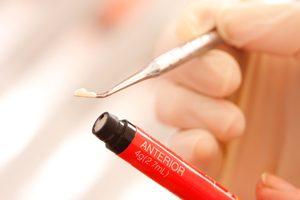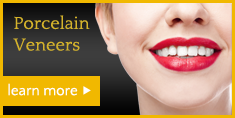 Improving the smiles and self-esteem of our patients is one of the best parts of our job. And often this requires the use of dental bonding, a painless and easy way to restore damaged teeth, or just to improve appearance.
Improving the smiles and self-esteem of our patients is one of the best parts of our job. And often this requires the use of dental bonding, a painless and easy way to restore damaged teeth, or just to improve appearance.
A thin layer of liquid resin is simply brushed onto the tooth and cured with a special light to harden the bond.
Bonding can be used many ways such as to cover stains, fill in chipped areas, repair areas of decay, or fill in spaces between teeth. The bonding resin can be shaped and smoothed to look exactly like natural teeth.
Bonded Porcelain
Have You ever wanted a movie-star smile, but didn’t want to risk crowning or “capping” all your front teeth? We may have a solution in porcelain veneers. These are thin, high-strength veneers of porcelain that, through the technology of bonding, can be applied to the fronts of teeth with very little preparation and often no anesthetic.
But bonding is more than cosmetic.
Sealing Out Decay
The form of bonding known as sealants helps prevent decay in back teeth and is of special benefit to children.
Sealants are clear or lightly tinted plastics that are applied to the chewing surfaces of back teeth. These teeth contain deep grooves that trap decay-causing bacteria. Sealants bonded to these teeth can keep out these bacteria—and so keep cavities at bay.
Protecting Exposed Roots
The exposed roots of teeth, commonly caused by gum recession, can be protected by bonding. This not only helps prevent root decay, but it may also make teeth less sensitive to variations in temperature.
If bonding interests you, please feel free to contact us for more information!




Comments are closed.